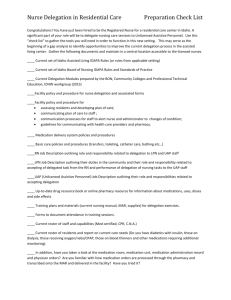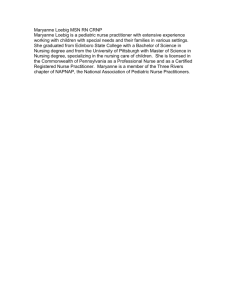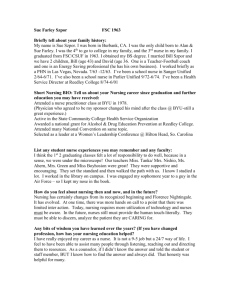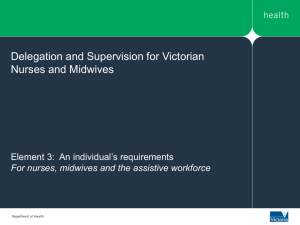FAQs - Office of Superintendent of Public Instruction
advertisement
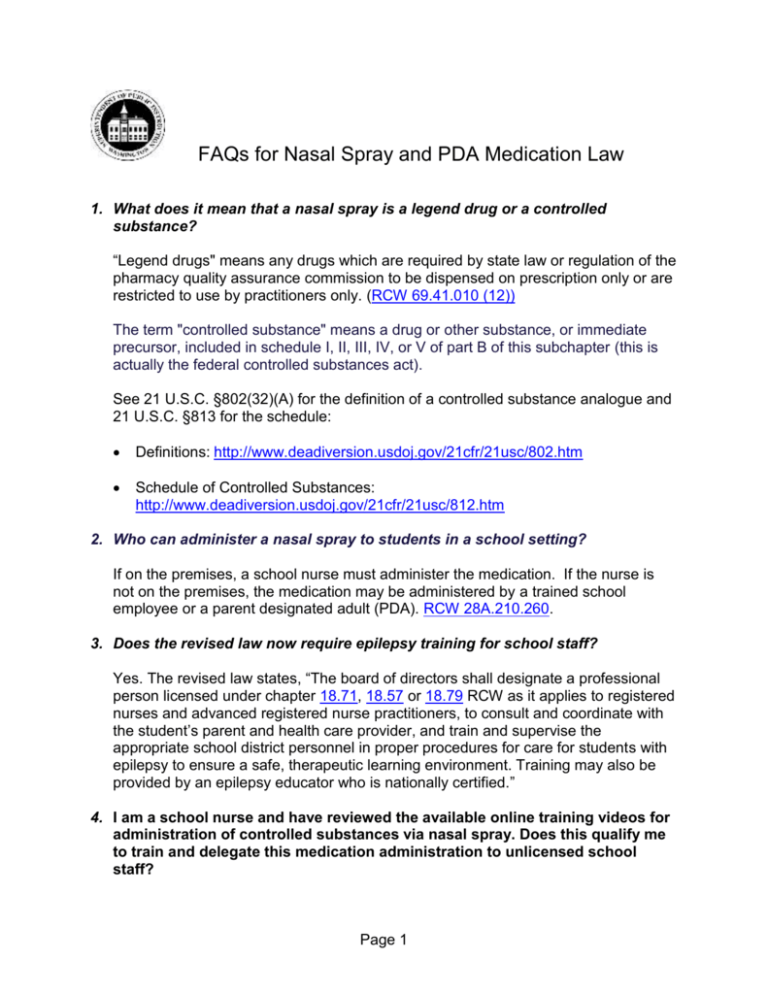
FAQs for Nasal Spray and PDA Medication Law 1. What does it mean that a nasal spray is a legend drug or a controlled substance? “Legend drugs" means any drugs which are required by state law or regulation of the pharmacy quality assurance commission to be dispensed on prescription only or are restricted to use by practitioners only. (RCW 69.41.010 (12)) The term "controlled substance" means a drug or other substance, or immediate precursor, included in schedule I, II, III, IV, or V of part B of this subchapter (this is actually the federal controlled substances act). See 21 U.S.C. §802(32)(A) for the definition of a controlled substance analogue and 21 U.S.C. §813 for the schedule: Definitions: http://www.deadiversion.usdoj.gov/21cfr/21usc/802.htm Schedule of Controlled Substances: http://www.deadiversion.usdoj.gov/21cfr/21usc/812.htm 2. Who can administer a nasal spray to students in a school setting? If on the premises, a school nurse must administer the medication. If the nurse is not on the premises, the medication may be administered by a trained school employee or a parent designated adult (PDA). RCW 28A.210.260. 3. Does the revised law now require epilepsy training for school staff? Yes. The revised law states, “The board of directors shall designate a professional person licensed under chapter 18.71, 18.57 or 18.79 RCW as it applies to registered nurses and advanced registered nurse practitioners, to consult and coordinate with the student’s parent and health care provider, and train and supervise the appropriate school district personnel in proper procedures for care for students with epilepsy to ensure a safe, therapeutic learning environment. Training may also be provided by an epilepsy educator who is nationally certified.” 4. I am a school nurse and have reviewed the available online training videos for administration of controlled substances via nasal spray. Does this qualify me to train and delegate this medication administration to unlicensed school staff? Page 1 School nurses must act within the scope of their professional practice, and a delegated nursing task needs to be within the scope of the delegating nurse. A nurse must possess the depth and breadth of knowledge, and the current clinical skills, to perform the task safely and effectively. In the process of determining the appropriateness of nurse delegation in schools, a school nurse uses his or her judgment to determine the competency of the individual accepting the training to complete the delegated task. Videos are generally used as complements to update skill sets and are not used exclusively for developing the mastery necessary to delegate a nursing task. In every instance, the nurse retains responsibility for the quality of nursing care provided by the delegatee. Additional guidance on delegation in schools is available from the Nursing Care Quality Assurance Commission (NCQAC) Scope of Practice Decision Tree (Department of Health); and the Office of Superintendent of Public Instruction’s Staff Model for the Delivery of School Health Services (pages 4 and 5). These documents are both available on the OSPI Health Services website at http://www.k12.wa.us/HealthServices/Resources.aspx The NCQAC Practice Advisory Group for the School Setting is currently working on delegation guidance for registered nurses in a school setting in an effort to assist the commission with the development of an advisory opinion on registered nursing delegation in schools. The American Nurses Association and the National Council of State Boards of Nursing have produced a joint statement on delegation that can be consulted for additional guidance at https://www.ncsbn.org/Delegation_joint_statement_NCSBN-ANA.pdf. 5. Intranasal administration of midazolam is being prescribed for school aged children with epilepsy. The literature that accompanies midazolam recommends having respiratory support equipment available when administering this medication. What does that mean in a school setting where this medication can be delegated to unlicensed school staff? The literature accompanying midazolam is present because oversedation is a risk of the medication. The nurse needs to use her/his clinical judgment when considering the delegation of a nursing task. Before delegating a nursing task the nurse shall assess the stability of the student’s health condition and verify the competency of the unlicensed staff person to perform the delegated task. A part of the assessment piece is the importance of communicating with the healthcare provider about delegation of the nursing task to unlicensed school staff for an individual student. See question 4 for guidance on delegation of nursing tasks to unlicensed school staff. Page 2

